Retro Replay Review
Gameplay
Eden Blues plunges you into a tense, first-person escape scenario where every movement counts. As a prisoner in a labyrinthine jail, you must navigate corridors patrolled by droid guards on shifting schedules—some walk only by day, others only by night, and one relentless “dog-like” sentinel on constant alert. Learning these schedules and exploiting blind spots is essential to progress, creating a stealth-puzzle dynamic that keeps you constantly on your toes.
(HEY YOU!! We hope you enjoy! We try not to run ads. So basically, this is a very expensive hobby running this site. Please consider joining us for updates, forums, and more. Network w/ us to make some cash or friends while retro gaming, and you can win some free retro games for posting. Okay, carry on 👍)
The core mechanic revolves around bashing unlocked or fragile doors to carve new pathways. However, brute force comes at a cost: each swing drains your physical endurance, forcing you to scavenge for food rations scattered throughout the maze. Meanwhile, your health is a ticking clock, decreasing over time and requiring you to hunt for restorative bottles in hidden alcoves and behind false panels.
Adding variety, Eden Blues peppers the labyrinth with coins that operate coffee dispensers—small power-ups that grant temporary speed boosts or slow the droids’ reaction times. Yet these machines are often booby-trapped by talking portraits or pressure plates, and interacting with them can trigger alarms or spawn additional hazards. Every decision to risk a coffee boost or conserve your currency becomes a compelling tension-builder.
The game’s real-time nature means you cannot pause during critical moments, making each door bash or sprint away from a returning guard feel urgent. Resource management is tight: do you pursue that faint glimmer of a health bottle at the far end of a corridor, or do you bypass it to avoid alerting a patrolling droid? This risk-reward loop drives a satisfying push-and-pull rhythm throughout the escape journey.
Graphics
Eden Blues employs a gritty, industrial art style that emphasizes the cold, metallic atmosphere of the prison complex. Corridors are dimly lit by flickering neon panels, casting long shadows that help you gauge guard positions—but also conceal lurking traps. Textured walls show wear and tear, with scuffed paint and rusted pipes underscoring the facility’s age and neglect.
The droid guards are designed with sleek, utilitarian lines, their servomotors and glowing visors providing a futuristic contrast to the decaying environment. Animations are fluid, especially when a droid transitions from patrol to chase mode. The responsive movement conveys a sense of mechanical precision that feels both intimidating and believable.
Environmental details abound: scattered food wrappers, empty bottles, and coffee cups lend authenticity to the lived-in world, while occasional holographic portraits flicker on control panels to remind you that not everything is as it seems. Subtle particle effects—dust motes in shafts of light, steam venting from pressure valves—add depth without overwhelming the gameplay.
Lighting and shadow mechanics play a crucial role in both aesthetics and strategy. Dynamic shadows help you remain unseen, but inaccurate timing or sudden light shifts can expose you. The game’s performance remains smooth even when multiple effects converge, ensuring that visuals never impede the tight gameplay loops.
Story
At its core, Eden Blues tells a minimalist but compelling tale of confinement and the drive for freedom. You awaken in a cell with no memory of how you arrived, and the only narrative breadcrumbs come from cryptic audio logs and the occasional inscription on the walls. This sparse storytelling invites players to piece together the backstory organically as they navigate the prison’s depths.
Talking portraits scattered throughout the labyrinth serve as both world-building tools and psychological foils. Some offer helpful hints or taunt you with fragmented histories, while others trigger traps or misleading cues. This interplay blurs the line between ally and adversary, keeping the narrative unpredictable and immersive.
The dynamic between you and the droid guards hints at a larger conspiracy. Why are these automatons assigned to this facility? What purpose does the coffee machine really serve beyond a simple buff? Eden Blues teases grander mysteries in its final corridors, setting the stage for potential expansions or a sequel that could reveal the full scope of its dystopian setting.
Ultimately, the story rewards attentive players who explore every nook and cranny. Discovering hidden logs and deciphering portrait messages yields a richer understanding of the prison’s origins and the motives behind your incarceration. This organic unraveling of lore feels earned and deeply engaging.
Overall Experience
Eden Blues is a masterclass in tension-driven design, expertly balancing resource management, stealth, and exploration. Each successful dash past a guard, each recovered health bottle, and each broken door feels like a hard-won victory. The game’s pacing is relentless without becoming unfair, giving you moments to catch your breath before plunging you back into high-stakes decision-making.
Controls are intuitive, with smooth movement and responsive interaction mechanics. Swinging your makeshift weapon to bash doors feels weighty, and the accompanying stamina drain adds a layer of strategy to every confrontation. Coffee machine mini-games and portrait interactions inject variety, preventing the core loop from feeling repetitive even after extended play sessions.
Replay value is high, thanks to multiple guard schedules and randomized resource placements. Learning new guard shifts and experimenting with different escape routes makes each playthrough feel fresh. Speedrunners will appreciate the precise timing windows for droid patrols, while completionists can hunt every secret alcove and lore fragment.
For fans of stealth-puzzle adventures with a dark sci-fi twist, Eden Blues delivers an engrossing and challenging experience. Its atmospheric graphics, tight gameplay loops, and intriguing narrative hooks combine to form a cohesive whole that will keep you returning to the labyrinth long after your first escape attempt.
 Retro Replay Retro Replay gaming reviews, news, emulation, geek stuff and more!
Retro Replay Retro Replay gaming reviews, news, emulation, geek stuff and more!
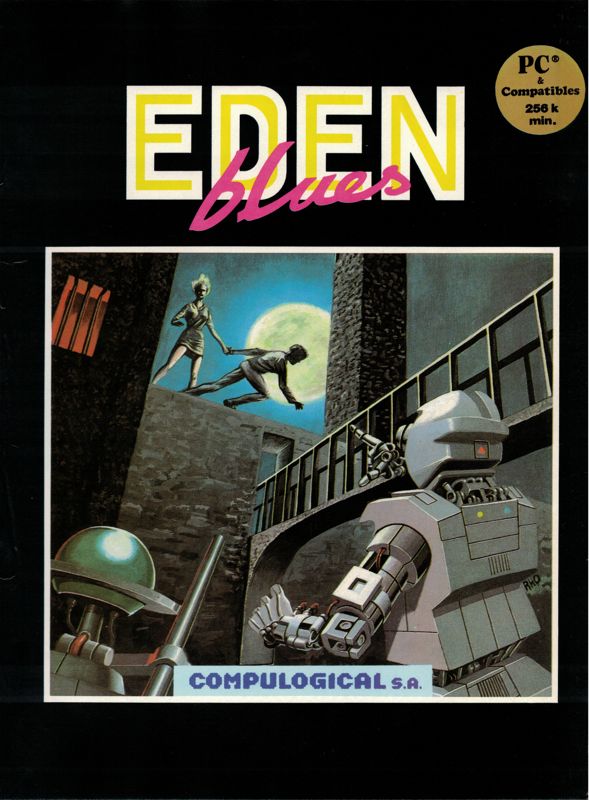
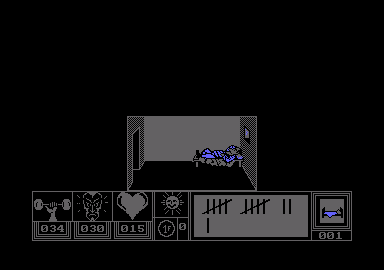
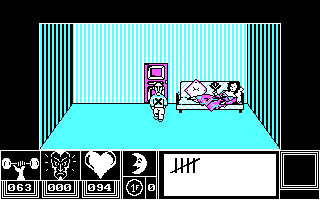

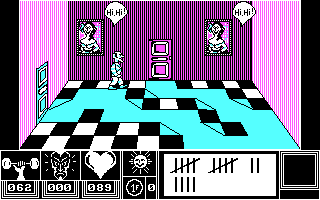
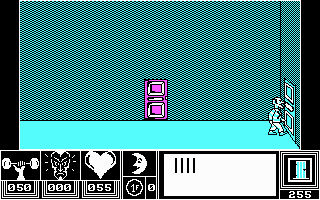



Reviews
There are no reviews yet.